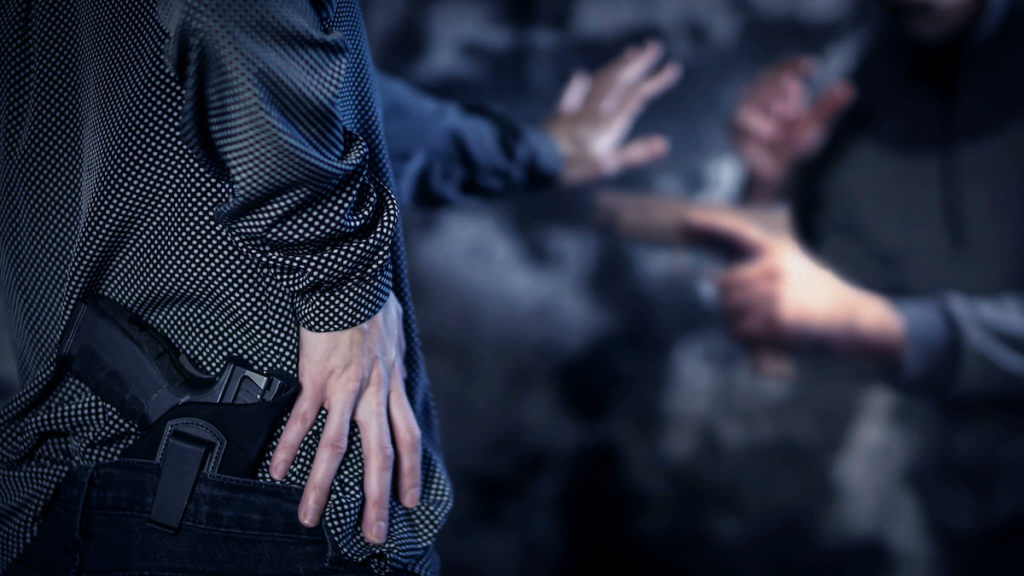
It’s always better to fire a warning shot than to aim directly at another person in a self-defense situation, right? The answer might not be what you think.
Imagine it’s a Friday night and you’re in the parking lot outside of a local restaurant. You just enjoyed a post-workweek meal with your family, and you’re walking to your car to head home and enjoy the weekend.
Suddenly, you see a group of people rushing across the lot. They’re brandishing weapons and running toward you, your family, and the restaurant.
What should you do? Should you fire at them? They aren’t pointing their guns directly at you, but are they a threat to your life? Are they about to enter the restaurant and start shooting? If you don’t act quickly, you could miss the chance to intervene in tomorrow’s terrible news headline. You decide to protect yourself and your community by drawing your concealed carry weapon and firing two warning shots into the air.
That’s the end of that, right?
Wrong.
Why This Situation Is a Legal Minefield
This fictional story is a great example of why a law-abiding gun owner needs an attorney’s help and knowledge. Because in this case, firing warning shots into the air could actually result in you being arrested on serious felony charges.
SEE ALSO: The Vacation From Hell: What You Need to Know About Traveling With a Gun
What? How could that be? Because any time you use your weapon, there are potential legal and financial consequences. Your actions will be scrutinized and second-guessed, and if you did not precisely follow the letter of the law. you may find yourself in serious legal jeopardy.
What You Need to Know About Warning Shots—the Current Rules
First, you need to know what a “warning shot” means in the eyes of the law. Though every state’s law is different, many states treat a warning shot as a use of deadly force—even if the warning shot didn’t hurt or kill anybody. This means the law will evaluate your actions with the same legal standard as would be used if you had shot and killed someone. Not to mention, what goes up MUST come down, and your warning shot into the air could potentially hurt or kill an innocent bystander.
Ifs, Ands, or Buts—Common Tricky Situations
What about if someone’s rushing right at you without a gun? Can you fire a warning shot to stop them? Assuming your state’s law allows you to fire a shot only when your life is in danger, your warning shot may be legally justified. But remember, in most instances the use of deadly force must be immediately or imminently necessary. It isn’t inconceivable that a prosecutor would argue your warning shot is proof in and of itself that shooting wasn’t immediately necessary. If it were, you would have shot the attacker!
In Conclusion: Just Don’t
You’ve learned through these fictional scenarios that warning shots are generally a bad idea. But now you’re wondering how you can best protect yourself and your community.
You’re taking the first step. Ignorance of the law is not an excuse or defense that would hold up in court. You’ve got to prepare yourself mentally for the situation and learn your rights—which is what you’re doing right now by reading this. Finally, if you have a membership with U.S. LawShield, you have 24/7/365 emergency access to an attorney who is in your corner to help you navigate today’s complicated legal world.